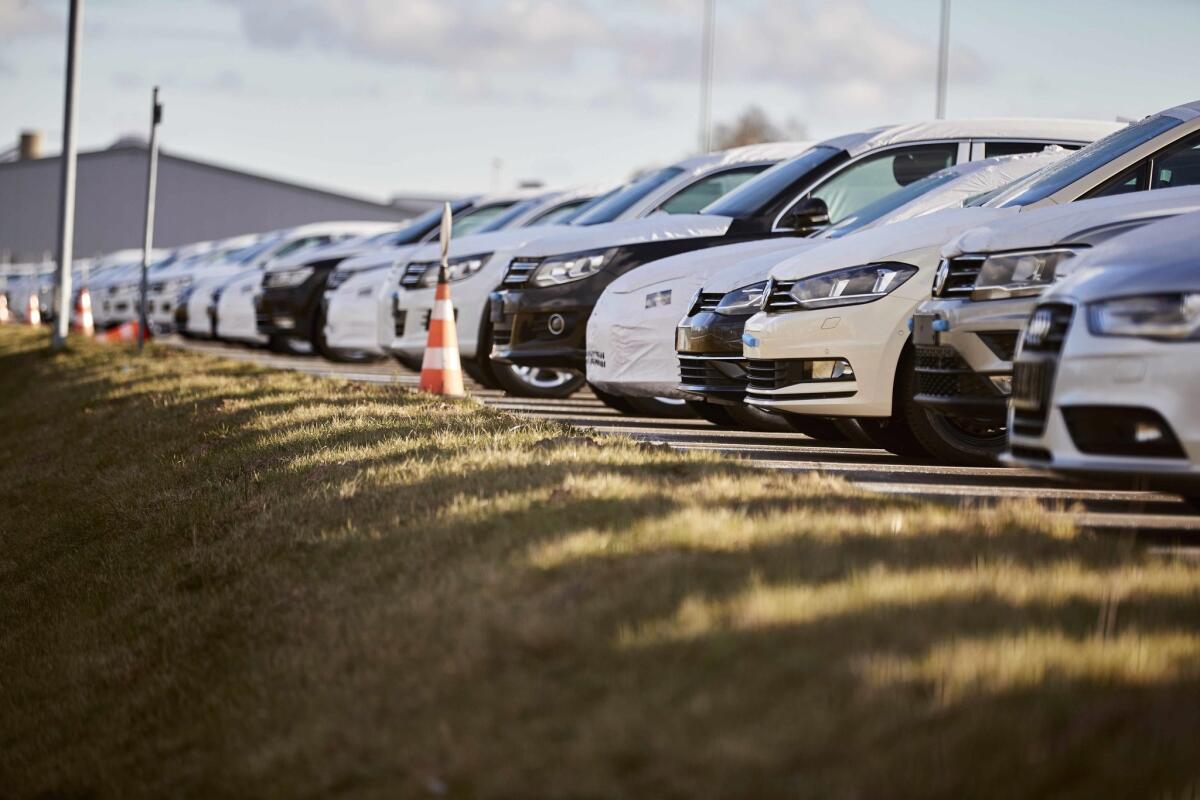Regulators approve fix for some Volkswagen cars that cheated on U.S. emission tests

- Share via
Volkswagen will soon be able to repair some of its diesel cars so they meet U.S. emissions standards.
The U.S. Environmental Protection Agency and the California Air Resources Board said Friday they have approved a fix for around 67,000 of the 475,000 Volkswagens and Audis with 2-liter diesel engines that were programmed to cheat on U.S. emissions tests.
The German automaker acknowledged the cheating in 2015.
The remedy will fix 2015 models of the Volkswagen Beetle, Beetle Convertible, Golf, Golf SportWagen, Jetta and Passat as well as the Audi A3. The EPA and Volkswagen say the fix won’t affect the cars’ fuel economy, reliability or driving characteristics. Volkswagen says 58,000 of those vehicles are in the hands of customers and 9,000 are at dealerships.
The remedy won’t apply to older Volkswagen and Audi models which date to 2009. Volkswagen has submitted fixes for those models, but the EPA and CARB haven’t yet approved them.
Volkswagen will reprogram the cars’ software immediately. In about a year, the company will install hardware on the cars, including a diesel particulate filter.
The fix is part of a $15 billion settlement approved by a federal judge in October. Under the settlement, Volkswagen owners and leaseholders were given the choice between selling their cars back to Volkswagen or having them repaired by the company. Volkswagen also agreed to pay owners up to $10,000 depending on the age of their cars.
Volkswagen had bought back more than 36,000 cars as of Jan. 3. It had also scheduled 130,000 appointments for future buybacks.
Volkswagen acknowledged in 2015 that diesels sold in the U.S. had software that recognized when the cars were being tested on a treadmill and turned on pollution controls. The controls were turned off when the cars returned to the road.
The EPA alleged the scheme let the cars spew up to 40 times the allowable limit of nitrogen oxide, which can cause respiratory problems in humans.
ALSO
Why tariffs on Chinese imports could backfire in California
For some workers, pay raise comes with loss of cheap child care
More to Read
Inside the business of entertainment
The Wide Shot brings you news, analysis and insights on everything from streaming wars to production — and what it all means for the future.
You may occasionally receive promotional content from the Los Angeles Times.










